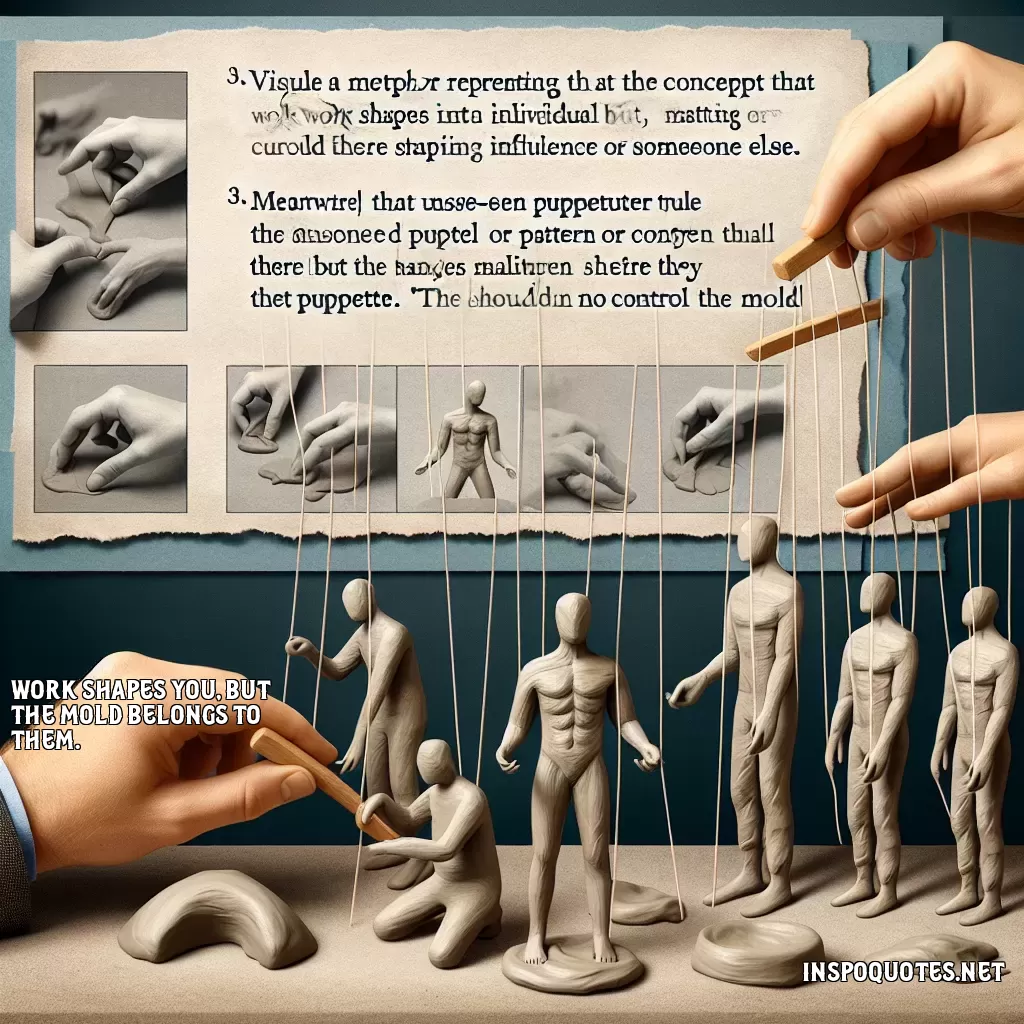
Work shapes you, but the mold belongs to them.
The quote "Work shapes you, but the mold belongs to them" suggests a complex relationship between individuals and the structures or systems in which they operate, particularly in the context of professional environments. In this statement, "work" is seen as a transformative force, influencing not only an individual's skills and experiences but also their identity and personal growth. However, the phrase "the mold belongs to them" introduces an external element of control, implying that while work shapes individuals, the frameworks, expectations, and conditions shaping this transformation are set by others, often those in power or authority within an organization or industry. In essence, this quote reflects on the role of institutional structures in shaping personal and professional development. While individuals engage with their work and gain knowledge, proficiency, and identity from it, the conditions under which they work—such as rules, corporate culture, and objectives—are defined by those who own or manage these institutions. This dichotomy highlights a potential lack of autonomy for the individual, emphasizing the power and influence of organizational systems over personal development paths. It raises important considerations about agency within professional life and encourages reflection on how we might navigate or challenge these predefined molds to align more closely with personal aspirations and values. Such reflection could help individuals seek work environments that not only shape them but also respect and nurture their unique qualities and potential.
Quote By: Daniel J. Levitin
Daniel J. Levitin is an accomplished neuroscientist, musician, author, and lecturer, best known for his interdisciplinary work that bridges the gap between cognitive neuroscience and music. Born on April 27, 1961, in St. Louis, Missouri, Levitin’s early fascination with music strongly influenced his academic trajectory. He pursued studies in cognitive psychology and neuroscience at universities such as Stanford and the University of Oregon, earning his Ph.D. in the field of psychology.
Levitin gained widespread acclaim with his bestselling book, "This Is Your Brain on Music: The Science of a Human Obsession," published in 2006. In this ground-breaking work, Daniel J. Levitin explores the neurological and psychological mechanisms behind musical perception and appreciation, revealing how music profoundly shapes human experience. The book's engaging blend of scientific rigor and accessible writing has made it a favorite among both lay readers and scholars alike, solidifying Levitin's reputation as a leading voice in the study of music cognition.
In addition to his contributions to music science, Daniel J. Levitin has an extensive background in the music industry. Before turning his focus to neuroscience, he worked as a record producer and sound engineer, collaborating with various artists and accumulating a wealth of practical knowledge about music creation. His unique perspective combines empirical research with firsthand experience in music production, allowing him to address complex questions about how music affects the brain.
Levitin has authored several other influential works, including "The Organized Mind: Thinking Straight in the Age of Information Overload," where he investigates how we can manage our cognitive resources in a world filled with distracting stimuli. Through his research and writings, Daniel J. Levitin continues to inspire audiences about the interconnectedness of music, memory, and the human brain. He currently holds a position at McGill University in Montreal, where he teaches courses on music perception and cognition, further cementing his legacy as a pioneer in the field of music neuroscience.